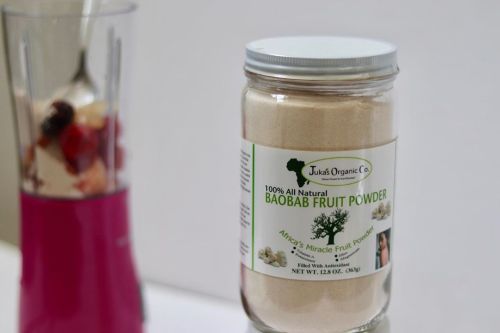
Baobab is a tree that grows in Africa, Australia, and the Middle East. Every part of the tree has conventionally been used as food, as medicine, or as the foundation of clothing or household items. Baobab fruit powder is safe to eat, and baobab seed powder is used in foods because of its nutrients, promising health benefits, and accepted preservatives.
It is a good foundation of vitamin C, potassium, carbohydrates, and phosphorus. The fruit is found within hard pods that droop upside down from the tree. It has a citrus flavor. Baobab is “wild-harvested.” It is in use from its natural surroundings and dried naturally. The seeds are detached and position into a powder that can be additional to food products.
Benefits
Traditionally, baobab leaves, bark, and seeds have been worn to treat “approximately any disease,” including malaria, tuberculosis, fever, microbial infections, diarrhea, anemia, toothache, and dysentery. The leaves and fruit soft tissue have been used to lessen fever and arouse the immune system.
The health benefits of baobab are said to include:
· Improving digestive health
· Supporting the immune system
· General hydration and skin health
It is reported to contain antimicrobial, anti-inflammatory, antimalarial, antidiarrheal, antiviral, and antioxidant properties and help treat or prevent anemia and asthma.
Nutrition
The pulp of the baobab fruit contains:
- Vitamin C
- Calcium
- Phosphorus
- Carbohydrates
- Fiber
- Potassium
- Protein
- Lipids
The pulp can be used to put in flavor to dishes and in juices.
The seeds contain:
- Phosphorus
- Magnesium
- Zinc
- Sodium
- Iron
- Manganese
- Lysine
- Thiamine
- Calcium
A teaspoon of organic baobab powder, weighing approximately 4.4 grams, contains:
- 10 calories
- 3 g of carbohydrate, of which 1 g is sugar
- 2 g of fiber
- 136.4 milligrams (mg) of vitamin C
- 0.352 mg of thiamin
- 0.227 mg of vitamin B6
- 10 mg of calcium
The vitamin C level is supposed to be 10 times that of oranges. Baobab leaves are also wealthy in calcium. The seeds and kernels of baobab fruit have a high-fat satisfaction, while the pulp and leaves have antioxidant properties.
One advocate of baobab fruit for sale claims it has 10 times the fiber of apples, six times the vitamin C of oranges, two times the antioxidants of acai berries, two times the calcium of milk, four times the potassium of bananas, and five times the magnesium of avocados.
Dietary Tips
In the regions where it grows, baobab is a fastener food. In central Africa, the leaves are harvested and dried. They can be used in a like means to spinach or used as the basis of pulp for adding up to gruels, rice, and porridge.
The fruit pulp can be dissolved in water or milk and used as a drink, a sauce for food, as a fermenting mediator in brewing, or in baking, comparable to the cream of tartar.
Baobab powder supplement is most usually obtainable as a powder in regions where the fruit is not full-grown. It is hard to discover fresh baobab fruit external the regions where it grows.




